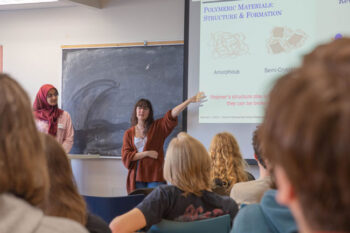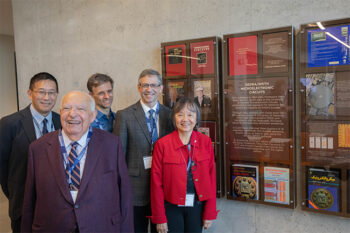On November 16, the Toronto Rehabilitation Institute unveiled 13 new state-of-the-art labs, where researchers will mimic environmental challenges faced by seniors and people with disabling injury or illness.
The iDAPT Centre is a $36-million collaboration with U of T and is largely funded by the federal and provincial governments.
“Everywhere you look there are problems that need solving,” said Professor Geoff Fernie (IBBME, MIE), Vice-President of Research at Toronto Rehab.
iDAPT will focus on three areas: preventing injury or illness; restoring independence and quality of life after injury or illness; and, supporting people in their homes so they don’t need to enter hospitals or nursing homes.
Researchers are tackling various challenges that come with age, disability and disease: how to fight hospital-acquired infections, diagnose sleep apnea and regain movement in paralyzed limbs.
iDAPT’s centrepiece is the Challenging Environment Assessment Lab (CEAL). There, scientists are researching falls, one of the most debilitating and costly causes of personal injury.
“If you fall and break your hip [on ice], around 50% do not recover from it and will pass away within a year,” said Jennifer Hsu (MechE PhD Candidate), a researcher at WinterLab, which is one of the 13 new labs.
“We’re already doing a lot of this [research] but iDAPT will help us do it much better and much faster,” said Professor Fernie.
Fernie is a Professor in the Department of Surgery with cross-appointments in the Institute for Biomedical & Biomaterial Engineering and the Department of Mechanical & Industrial Engineering.
To learn more about the iDAPT labs, visit the Toronto Star and the Globe and Mail .



